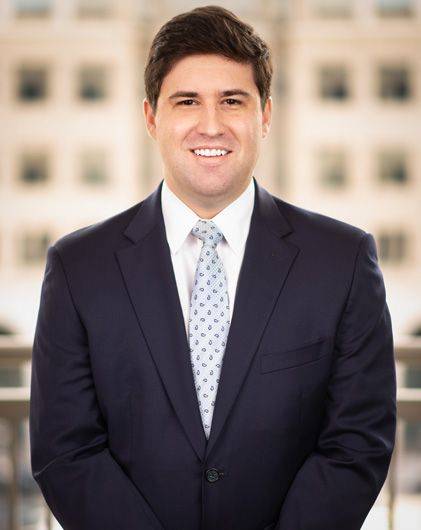SC Supreme Court Rules on Private Rights of Action, Negligence Per Se in Third-Party Claimant’s Direct Action Against Insurer
This alert was originally published by Phelps on April 5, 2023, and was expanded for additional publication by Law360 under the title DUI Liability Ruling Affirms SC Isn't Direct Action-Friendly.
The Supreme Court of South Carolina recently determined that an insurer’s alleged failure to adhere to a statute requiring it to notify a regulatory agency that an insured’s liquor liability insurance had lapsed did not create a private right of action against the insurer and was not a basis for cause of action directly against the insurer under the doctrine of negligence per se.
Anthony Denson, as personal representative of the state of Garland Denson v. National Casualty Company, arises out of a drunk driving accident in which Garland Denson, the decedent, was killed by a patron of the insured bar who was allegedly overserved prior to getting behind the wheel. In seeking to hold the bar liable for the decedent’s death, the estate of the decedent, represented by Anthony Denson, learned that the bar had allowed its liquor liability insurance with the defendant, National Casualty, to lapse. Under S.C. Code Ann. § 61-2-145(A), the bar was statutorily required to hold liquor liability coverage of at least $1 million, but it failed to do so. Although the bar did previously have liquor liability coverage with the defendant, National Casualty, the bar allowed the insurance to lapse in conjunction with the onset of COVID-19 and the statewide closure of bars and restaurants. It failed to renew the coverage when it reopened, such that there was no coverage for any claims relating to the accident. Pursuant to subsection (C) of the statute, insurers are required to notify the South Carolina Department of Revenue when an establishment subject to the statute allows its liquor liability coverage to lapse or terminate.
In lieu of seeking redress against the bar, Denson brought a negligence action against National Casualty in South Carolina federal court. Relying on S.C. Code Ann. § 61-2-145(C) and the doctrine of negligence per se, Denson asserted that the insurer was directly liable to the decedent’s estate for allegedly failing to notify the Department of Revenue of the bar’s lapse in liquor liability coverage. National Casualty moved to dismiss, arguing that the statute did not give Denson the right to bring claims against an insurer that allegedly violated the statute. Faced with a novel question of South Carolina law, the District Court certified the following question to the Supreme Court of South Carolina:
May a person entitled to bring a dram-shop action against a business maintain a negligence action against the business's insurer where the insurer failed to notify the South Carolina Department of Revenue of the business's lapse in or termination of liquor liability coverage in violation of S.C. Code Ann. § 61-2-145(C) [(2022),] and the business did not have liquor liability coverage at the time of the underlying accident?
In a 3-2 decision, the Supreme Court of South Carolina determined that the statute did not afford Denson the ability to bring a direct action against National Casualty.
The majority began its analysis by distinguishing between private rights of action and negligence per se. It noted that private rights of action permit a plaintiff to bring a cause of action under a statute where the legislature intended a violation of the statute to give rise to civil liability. The doctrine of negligence per se, on the other hand, allows a plaintiff to establish an alleged tortfeasor’s duty and breach of that duty by its violation of a statute in circumstances where the plaintiff already has the ability to bring an underlying common law cause of action. The Court explained that the fact that a statute defines a duty of care does not in and of itself create a private cause of action, however, as otherwise there would exist an untenable situation whereby every statute that established any duty of care could serve as the basis for an implied private right of action.
The Court then noted that the threshold inquiry was whether section 61-2-145 gave rise to a private right of action. It reasoned that the only means by which Denson could bring his negligence claim against National Casualty would be through a private right of action created by the statute at issue, as at common law there existed no right of action of a third-party claimant directly against an insurer absent privity of contract between the claimant and insured. In other words, where there is no common law right of action, negligence per se may not be utilized to prove liability absent a private right of action. Establishment of a duty under a statute does not provide the cause of action, but rather may act as a means to prove common law liability.
In assessing whether S.C. Code Ann. § 61-2-145(C) created a private right of action, the Court looked primarily to legislative intent. The Court explained that when a statute does not expressly create a cause of action, one will not be implied unless the statute was enacted to benefit a private party as opposed to “secure the safety or welfare of the public as an entity.” In determining that the statute created no private right of action, the Court held that reading the subject statute as allowing a private right of action would contravene common law, and “legislation in derogation of common law must be strictly construed” by the Court. Thus, “the lack of an express sanction for a direct right of action” in the statute led the Court “to conclude there is no statutory right to maintain against the insurer.”
Although the foregoing determination was sufficient to conclusively answer the District Court query, the Court continued by analyzing why the statute would not support a claim of negligence per se. It held that the statute failed to satisfy a requirement for using negligence per se to establish liability through the violation of statute—namely, that the “essential purpose of the statute is to protect from the kind of harm the plaintiff has suffered.” According to the Court, subsection (C) was enacted as part of a larger regulatory scheme to ensure that businesses selling alcohol maintain liability insurance such that the statute was “clearly intended” to promote public safety and welfare, as opposed to benefit a private party. Although the statutory scheme would, like all statutes mandating insurance coverage, ultimately benefit private parties, the Court held an intent to create a private right of action required more than a showing that a plaintiff “may potentially benefit.” Furthermore, when viewed in its entirety, the statute was “primarily aimed at regulating the insured’s actions and secondarily aimed at imposing a reporting requirement on the insurer.” The statute expressly imposed liquor license penalties on bars for failure to maintain insurance while providing no consequences for an insurer’s failure to report a lapse in coverage. This led to the conclusion that “the enforcement mechanism of the statute is the department’s authority to suspend or revoke a business’s liquor license, not civil liability on behalf of the business’s insurer.”
The Supreme Court of South Carolina’s decision in Denson not only provides further clarity of the state’s jurisprudence surrounding private rights of action and negligence per se, but also tacitly reinforces the notion that South Carolina is not a direct-action state. Thus, insurers should continue to feel confident that in most cases, they will be shielded from lawsuits brought directly by a third-party claimant in South Carolina.
Please contact Anna Pulliam Cathcart, Turner Albernaz or any member of Phelps’ Insurance team if you have questions or need advice or guidance.



